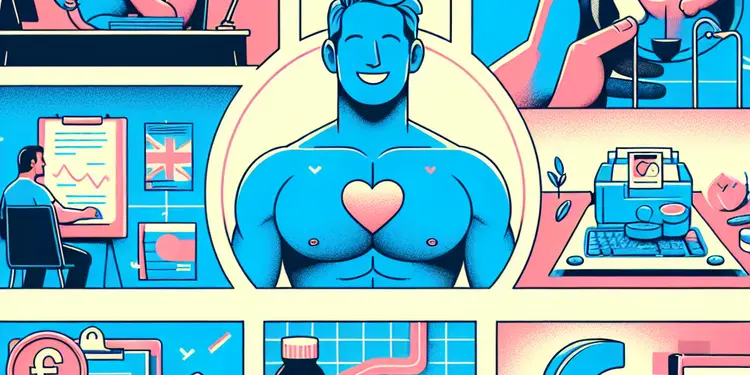
Find Help
More Items From Ergsy search
-
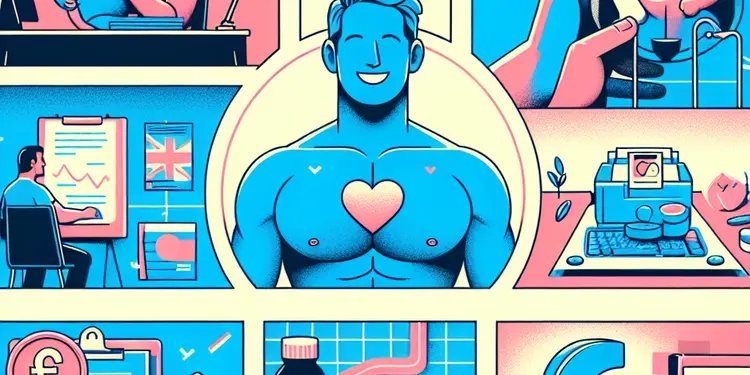
Is medication necessary for treating postnatal depression?
Relevance: 100%
-
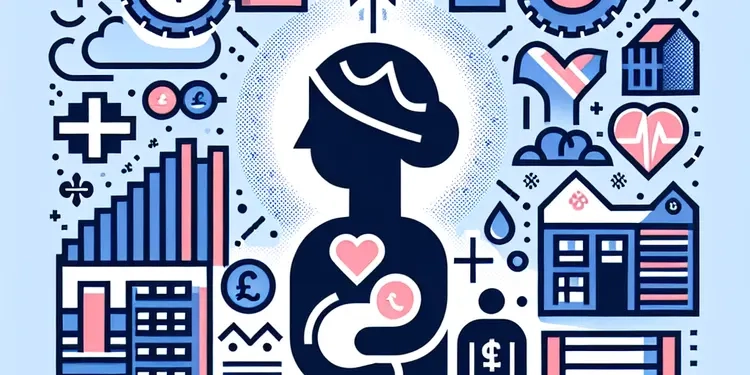
What is postnatal depression?
Relevance: 81%
-
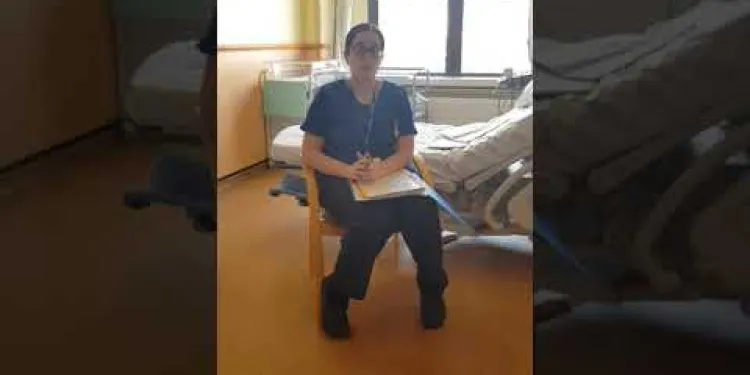
Postnatal Depression
Relevance: 78%
-
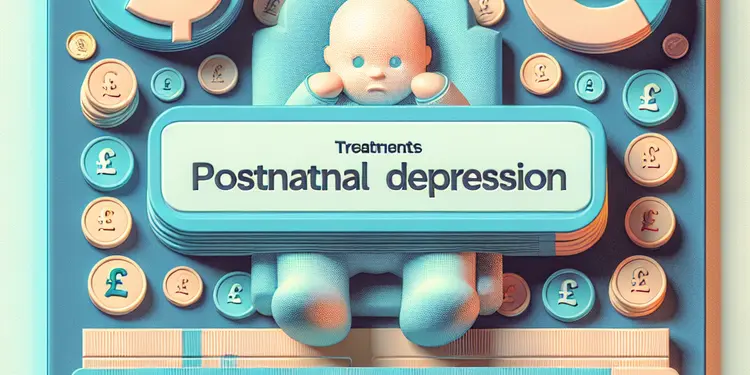
Are there treatments available for postnatal depression?
Relevance: 78%
-
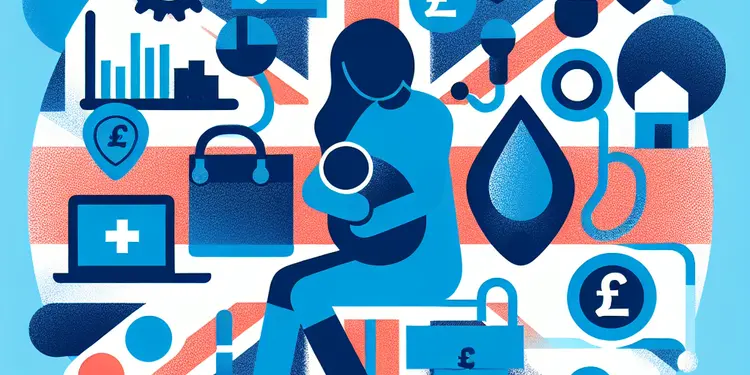
How is postnatal depression diagnosed?
Relevance: 77%
-

Is postnatal depression a long-term condition?
Relevance: 77%
-
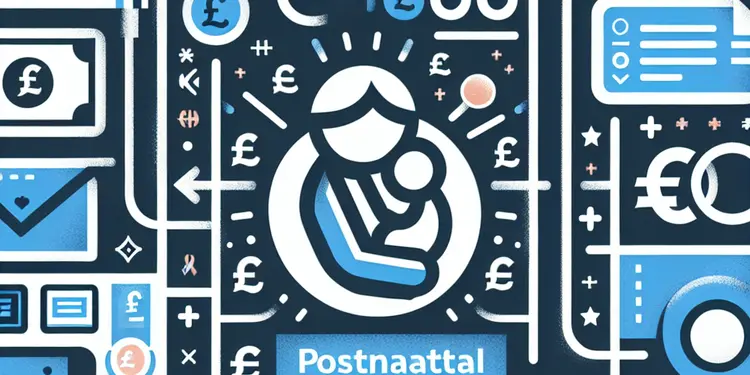
Is postnatal depression preventable?
Relevance: 73%
-

Postnatal Depression - Leanne's Story
Relevance: 73%
-
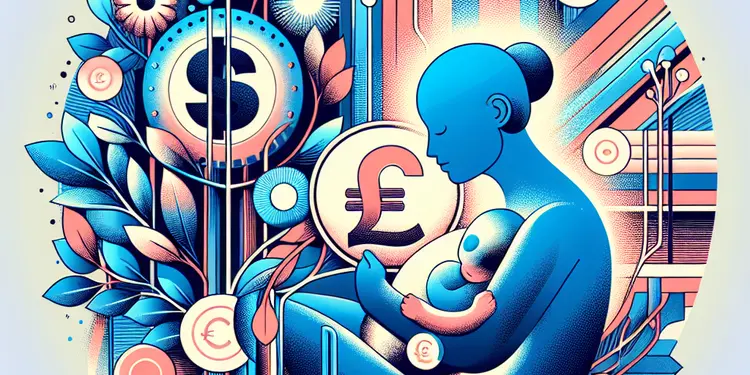
What are the symptoms of postnatal depression?
Relevance: 72%
-

Can fathers experience postnatal depression?
Relevance: 72%
-

What causes postnatal depression?
Relevance: 70%
-
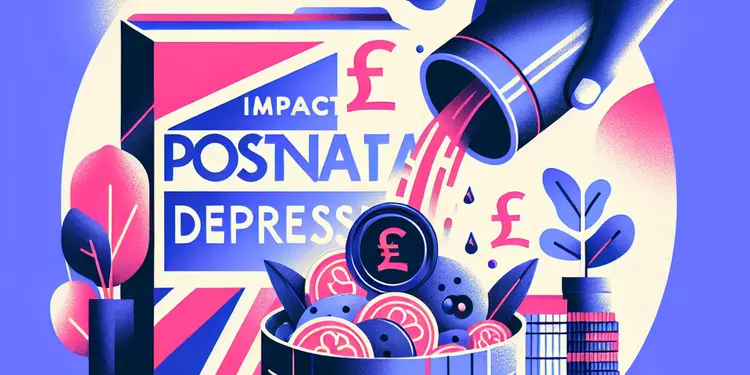
Can diet impact postnatal depression?
Relevance: 70%
-
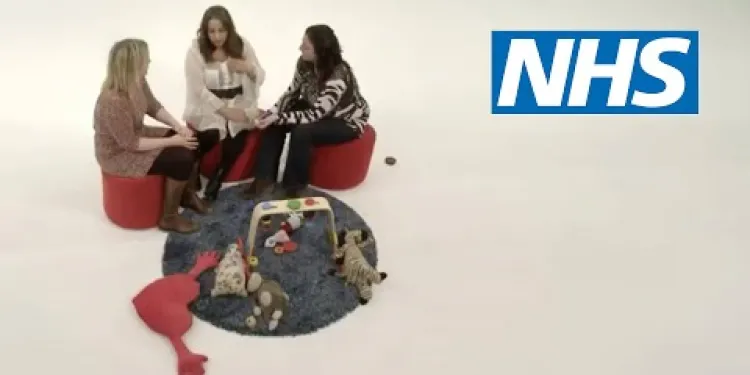
How do I know if I have postnatal depression? | NHS
Relevance: 69%
-
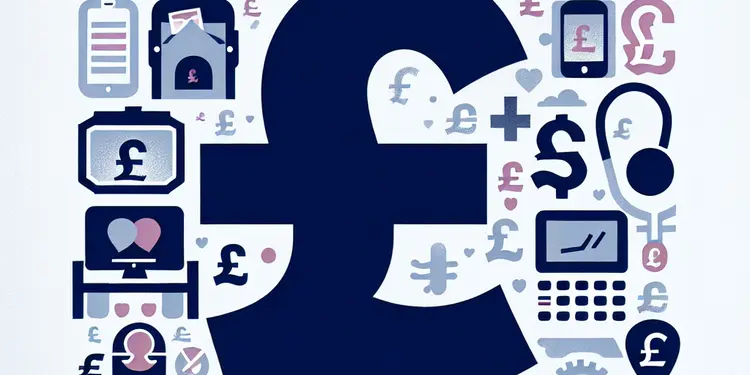
What should I do if I suspect I have postnatal depression?
Relevance: 69%
-
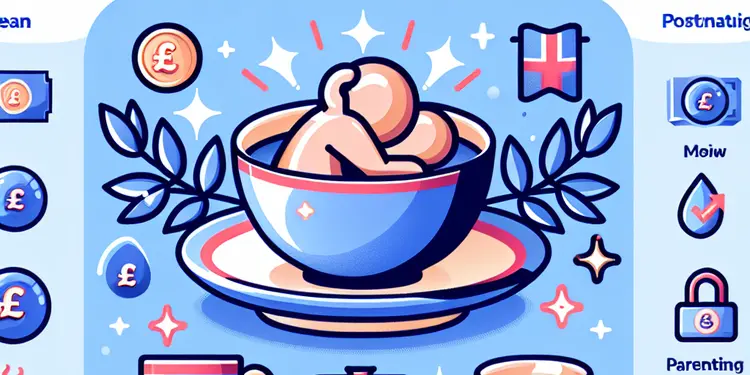
Are there support groups for postnatal depression?
Relevance: 68%
-

Should someone with postnatal depression seek professional help?
Relevance: 67%
-
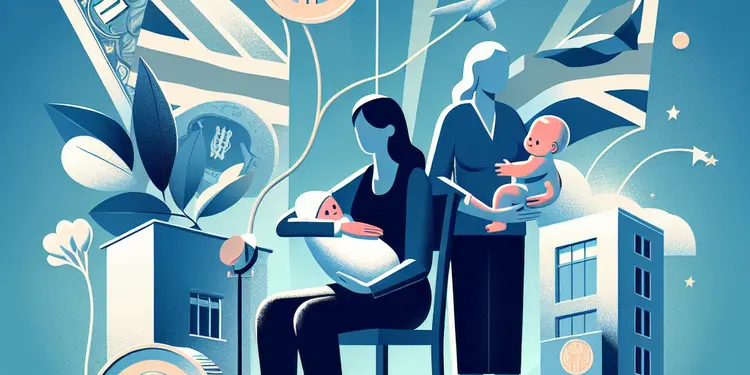
Can postnatal depression recur after treatment?
Relevance: 67%
-

Can postnatal depression affect subsequent pregnancies?
Relevance: 67%
-

Can lifestyle changes help with postnatal depression?
Relevance: 67%
-
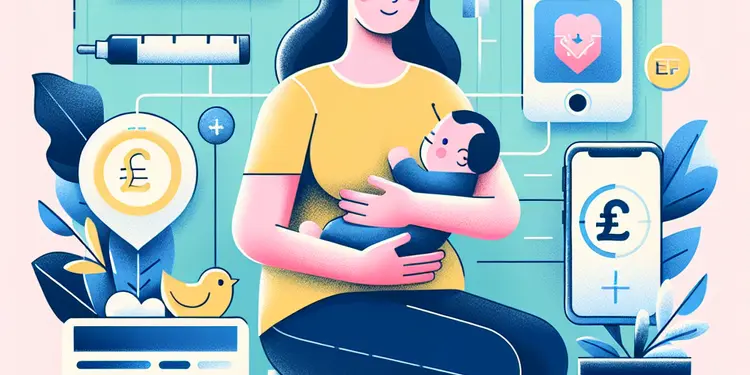
How is postnatal depression different from the 'baby blues'?
Relevance: 65%
-
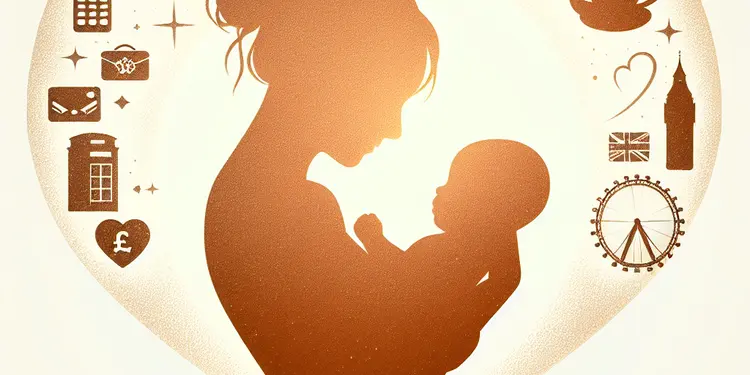
How does postnatal depression affect bonding with the baby?
Relevance: 64%
-
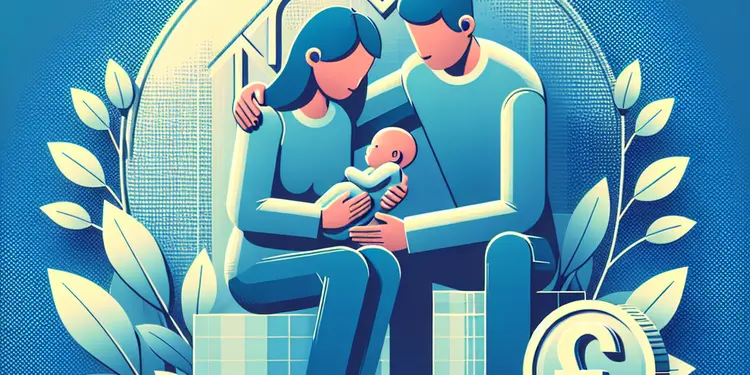
How can family members support someone with postnatal depression?
Relevance: 58%
-

Treating anxiety and depression - www.slam.nhs.uk
Relevance: 52%
-
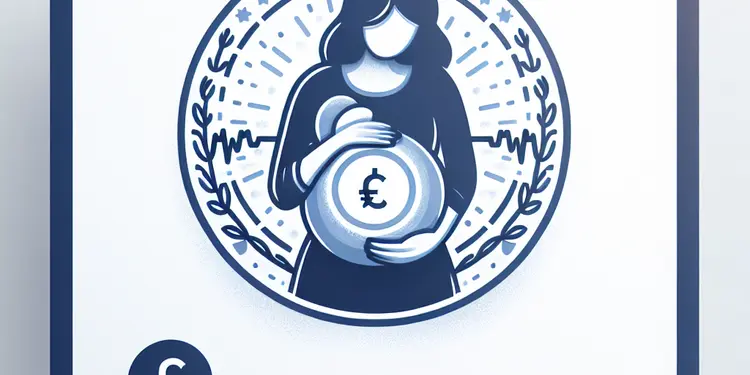
How soon after childbirth can postnatal depression occur?
Relevance: 47%
-
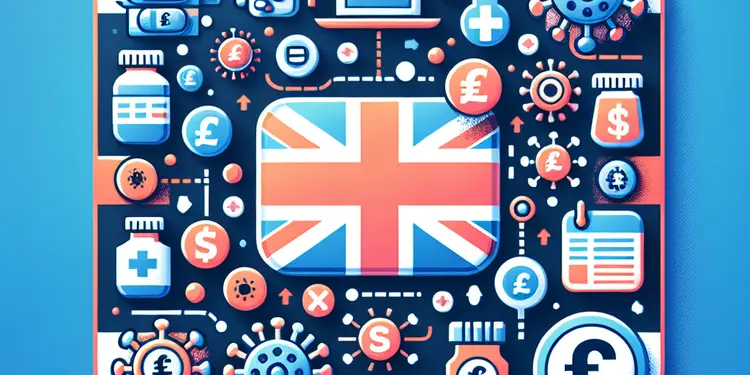
Can H3N2 be treated with antiviral medications?
Relevance: 36%
-

Can homeopathy treat all medical conditions?
Relevance: 34%
-
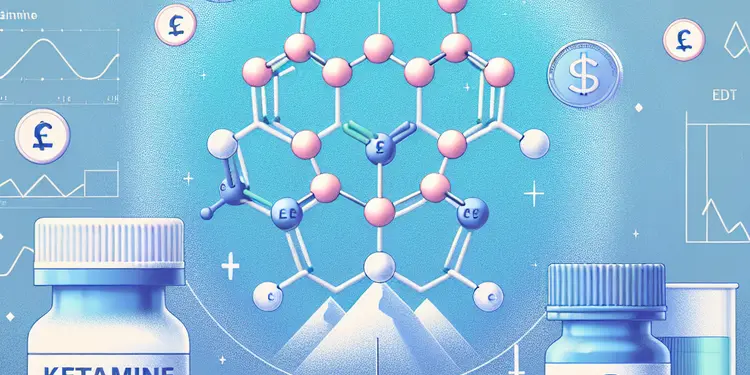
What are the medical uses of ketamine?
Relevance: 33%
-
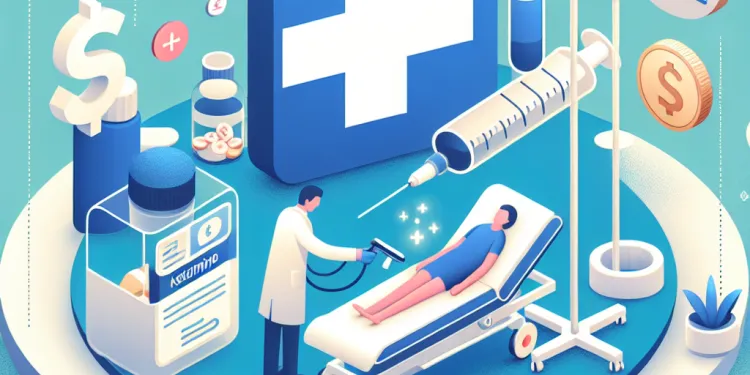
What conditions is ketamine used to treat?
Relevance: 33%
-

Clinical depression: Lawrence's story | NHS
Relevance: 32%
-

What medications are commonly used to treat BPH?
Relevance: 32%
-

Can physical symptoms be linked to relationship-induced depression?
Relevance: 31%
-
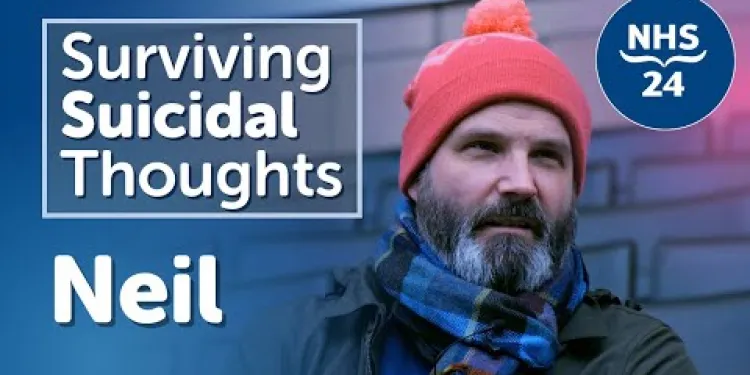
I couldn't celebrate Hibs beating Hearts because I was that depressed
Relevance: 30%
-
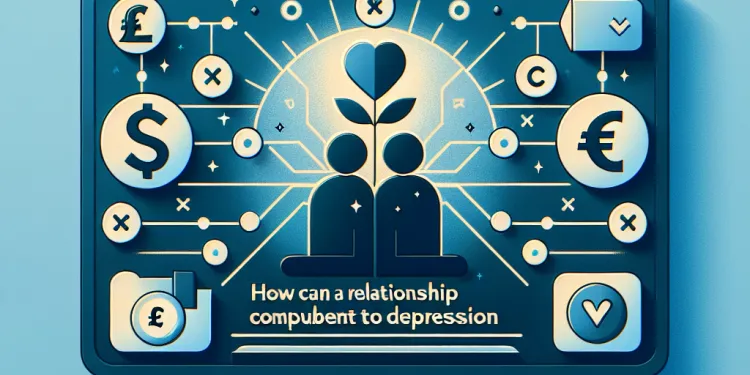
How can a relationship contribute to depression?
Relevance: 29%
-
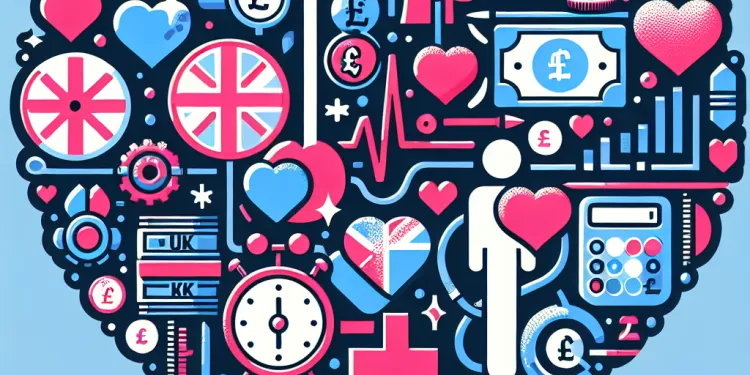
What are the signs that my relationship is making me depressed?
Relevance: 29%
-
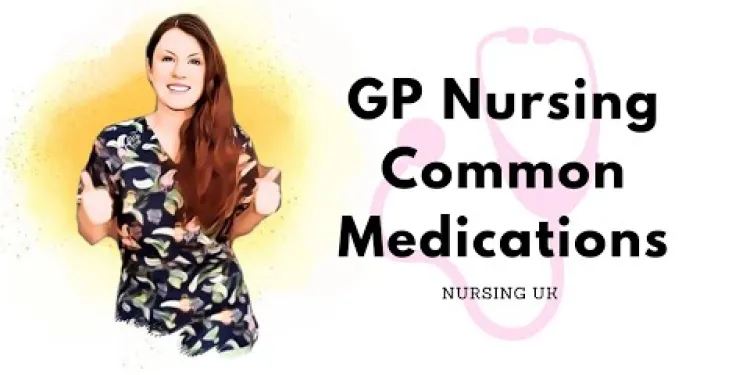
GP Nursing Most Common Medications UK.
Relevance: 29%
-

What are some common conditions treated with homeopathy?
Relevance: 27%
-
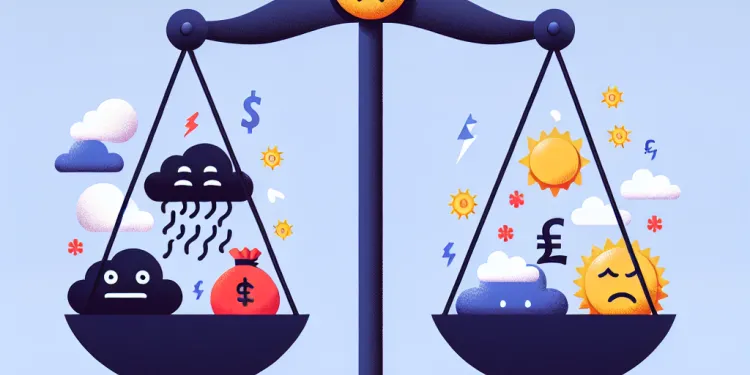
What role do unhealthy dynamics play in causing depression?
Relevance: 27%
-

Are there any self-care strategies to cope with relationship-induced depression?
Relevance: 27%
-
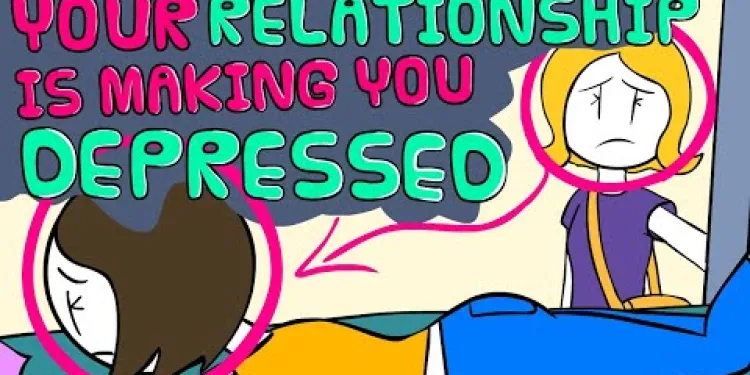
7 Signs Your Relationship is Making You Depressed
Relevance: 27%
-
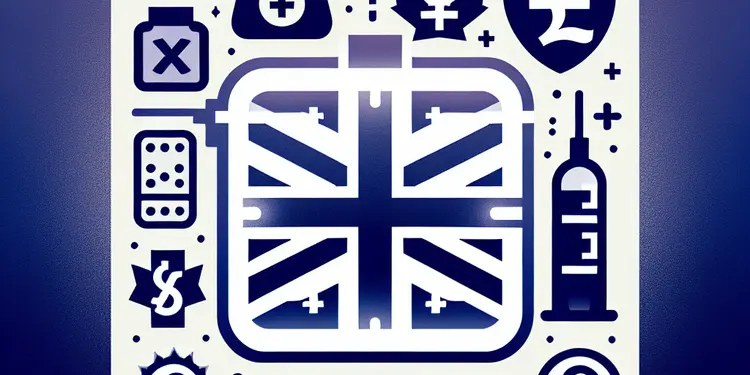
How can I legally obtain ketamine for medical use?
Relevance: 27%
Understanding Postnatal Depression
Postnatal depression (PND) is a type of depression that some parents experience after having a baby. It is a common condition that can affect around 1 in 10 women and, occasionally, men. The symptoms can range from mild to severe and may include feelings of sadness, lack of energy, difficulty bonding with the baby, and anxiety. Understanding the best approach to treatment is crucial for the well-being of both the parents and the child.
Medication as a Treatment Option
Medication can be a key component in the treatment of postnatal depression, particularly in moderate to severe cases. Antidepressants are the most commonly prescribed medications and can help alleviate symptoms by balancing chemicals in the brain that affect mood and emotions. It’s important to note that not all antidepressants are suitable for breastfeeding mothers due to potential effects on the baby. In the UK, selective serotonin reuptake inhibitors (SSRIs) are often considered because they have a favorable safety profile for both the mother and baby.
Non-Medical Treatments
For some individuals, non-medical treatments might be sufficient, especially for mild cases of postnatal depression. Psychological therapies, such as cognitive behavioural therapy (CBT) or counselling, can provide effective support by helping new parents understand and manage their feelings. Health visitors or GPs can often arrange these services. Additionally, self-help strategies, including support groups, exercise, and stress-reduction techniques, can play a significant role in recovery.
When is Medication Necessary?
The decision to use medication should be based on a thorough assessment by healthcare professionals. If symptoms are severe, persistent, or if there is a risk of harm to the parent or baby, medication may be necessary. The National Institute for Health and Care Excellence (NICE) provides guidelines on treating postnatal depression, emphasizing the importance of personalized care. Healthcare providers will weigh the benefits of medication against any potential risks, considering factors unique to the individual’s health and circumstances.
Consulting Healthcare Professionals
If postnatal depression is suspected, it’s vital to seek help promptly. A GP is typically the first point of contact and can assess the symptoms, provide advice, and discuss possible treatment options, including medication and talking therapies. Open communication with healthcare providers can help in making informed decisions that align with personal health needs and lifestyle choices.
Conclusion
Treatment for postnatal depression can involve medication, therapy, or both, depending on the severity of the condition and individual preference. Medication can be essential for those severely affected, while others might benefit from therapy and support. Understanding the options available in the UK and consulting with healthcare professionals can help ensure the best possible outcomes for parents experiencing postnatal depression.
Understanding Postnatal Depression
Postnatal depression (PND) happens when parents feel very sad after having a baby. It is common and affects about 1 in 10 women and sometimes men too. Parents with PND may feel very sad, tired, worried, and find it hard to connect with their baby. It’s important to know how to help parents feel better for their own and the baby’s health.
Medication as a Treatment Option
Sometimes, taking medicine can help parents with PND, especially if they feel very bad. This medicine is called antidepressants, and it helps make chemicals in the brain balanced to improve mood. Not all medicines are safe if a mom is breastfeeding, but some are safe and used often in the UK. It's important to talk to a doctor about this.
Non-Medical Treatments
Talking therapies like CBT or talking with a counselor can help parents feel better, especially if their PND is mild. Doctors or health visitors can help arrange these talks. Joining support groups, doing exercise, and learning how to relax are also good ways to feel better.
When is Medication Necessary?
Doctors decide if medicine is needed by looking at how the parents feel. If the parents feel very bad or there is a worry about keeping them or the baby safe, medicine might be needed. Doctors follow special rules to make sure it's the right choice for each family.
Consulting Healthcare Professionals
If someone thinks they have PND, they should talk to a doctor soon. The doctor can check how they are feeling and talk about the best ways to help, including medicine or talking therapy. Talking openly with doctors can help parents choose the best way to feel better.
Conclusion
Helping parents with PND might include medicine, talking therapy, or both. It depends on how they feel and what they prefer. Understanding all options and talking to healthcare professionals can help parents and their babies stay healthy and happy.
Frequently Asked Questions
What is postnatal depression?
Postnatal depression, also known as postpartum depression, is a type of mood disorder that affects some women after childbirth.
Is medication the only treatment for postnatal depression?
No, medication is not the only treatment. Other options include therapy, support groups, and lifestyle changes.
Can postnatal depression be treated without medication?
Yes, many women are able to manage postnatal depression through therapy, support, and lifestyle modifications without medication.
What types of medication are used to treat postnatal depression?
Common medications include antidepressants such as selective serotonin reuptake inhibitors (SSRIs).
Are there risks associated with taking medication for postnatal depression?
Like any medication, there can be side effects, and it's important to discuss these with your doctor.
How long does it take for medication to work for postnatal depression?
Antidepressants usually take a few weeks to start showing effects, and the duration can vary by individual.
Can I take antidepressants while breastfeeding?
Some antidepressants are considered safe while breastfeeding, but it’s crucial to discuss this with your healthcare provider.
Are there alternatives to medication for treating postnatal depression?
Yes, alternatives include therapy, support groups, exercise, and dietary changes.
What kind of therapy is effective for postnatal depression?
Cognitive-behavioral therapy (CBT) and interpersonal therapy (IPT) are often effective for postnatal depression.
How important is early intervention in treating postnatal depression?
Early intervention is crucial as it can dramatically improve outcomes and help prevent long-term issues.
Can lifestyle changes help with postnatal depression?
Yes, regular exercise, a healthy diet, and adequate sleep can significantly help improve symptoms.
Should I consult a doctor before starting medication for postnatal depression?
Yes, it is important to consult a healthcare provider to determine the best treatment plan.
What role do support groups play in treating postnatal depression?
Support groups provide emotional support and can be a valuable part of a comprehensive treatment plan.
How is the severity of postnatal depression assessed?
Healthcare providers use assessments and screenings to evaluate the severity and decide on appropriate treatments.
Can untreated postnatal depression affect my child?
Yes, untreated postnatal depression can affect bonding and have long-term effects on a child's development.
Is it common to need medication for postnatal depression?
While many women recover without medication, it is common and sometimes necessary for others.
Can medication for postnatal depression be stopped suddenly?
No, stopping medication suddenly can cause withdrawal symptoms. Always consult a doctor before making changes.
Can men experience postnatal depression?
Yes, new fathers can also experience postnatal depression, though it's less common.
How long might a treatment for postnatal depression last?
Treatment duration varies; some may need treatment for a few months, while others might require longer.
Is it safe to switch medications if the first one is not effective?
Switching medications may be necessary if the first is ineffective, but it should always be done under medical supervision.
What is postnatal depression?
After having a baby, some parents feel very sad. This is called postnatal depression. It means feeling unhappy for a long time, even when you have a new baby.
If you feel this way, you are not alone. Many parents feel this way after their baby is born. It is important to talk to someone who can help, like a doctor or a friend.
Using pictures or talking with someone you trust can help you understand your feelings better.
After having a baby, some mums feel very sad. This is called postnatal depression.
Is medicine the only way to help with feeling sad after having a baby?
No, medicine is not the only way to feel better. You can also talk to a therapist, join support groups, or make changes to your daily habits.
Can you feel better after having a baby without taking medicine?
Yes, lots of women can feel better after having a baby by talking to someone, getting help, and changing their daily habits. They can do this without taking medicine.
What medicine can help with feeling sad after having a baby?
Doctors can give special medicine to help new parents feel better. These medicines can make sad feelings go away. If you are feeling sad after your baby is born, talk to a doctor. They can help you find the right medicine.
Using a pillbox can help you remember to take your medicine every day.
Common medicines include drugs for feeling sad, called antidepressants. One type is called SSRIs. These help with serotonin in the brain.
Can taking medicine for feeling sad after having a baby be risky?
Medicines can sometimes cause other problems called side effects. Talk to your doctor about these problems.
How long until medicine helps with feeling down after having a baby?
Medicine can help moms feel better if they are sad after having a baby.
This medicine might take some time to work. It could be a few weeks.
If you feel worried, talk to your doctor. They can help you.
Here are some tips to feel better:
- Talk to someone you trust about how you feel.
- Rest when you can. It's good to sleep.
- Eat healthy food to stay strong.
- Try to go for a walk or move your body a bit.
Medicine for feeling sad, called antidepressants, can take a few weeks to start working. How long it takes can be different for each person.
Can I take medicine for feeling sad while breastfeeding?
Some medicines for feeling better are safe when you are feeding a baby with breast milk. It is very important to talk to your doctor about this.
Can you feel better after having a baby without taking medicine?
Yes, there are other ways to help. You can try talking to a therapist, joining a support group, doing some exercise, or eating healthier foods.
What helps if you feel sad after having a baby?
There are two types of talking treatments that can help new mums feel better if they are feeling sad after having a baby. One is called cognitive-behavioral therapy (CBT) and the other is called interpersonal therapy (IPT).
Why is it important to get help early for postnatal depression?
Getting help early for postnatal depression is very important. It helps you feel better sooner. It also helps you take care of your baby. If you get help early, it can stop things from getting worse.
Here are some things that might help you:
- Talk to a doctor or nurse.
- Ask family or friends for support.
- Try to rest and relax when you can.
Remember, it is okay to ask for help. You are not alone.
Getting help early is very important. It can make things much better and stop problems from getting worse later.
Can Changing Your Daily Habits Help with Feeling Sad After Having a Baby?
After having a baby, some people may feel very sad. This is called postnatal depression. Changing your daily habits might help you feel better.
Here are some ideas that could help:
- Talk to someone: Share your feelings with a friend or family member.
- Get rest: Try to sleep when your baby sleeps to get enough rest.
- Eat healthy: Eating fruits and veggies can help you stay strong.
- Take walks: Going outside for a walk can make you feel good.
If you still feel very sad, it is important to talk to a doctor. They can give more help.
Yes, doing exercise often, eating healthy foods, and getting enough sleep can help make you feel better.
Do I need to talk to a doctor before taking medicine for feeling sad after having a baby?
Here is a simple way to think about it:
- It is a good idea to talk to a doctor before starting any medicine.
- The doctor can help you know what medicine is right for you.
- They will make sure the medicine is safe for you and your baby.
- If you have questions, write them down so you can ask the doctor.
- You can also ask a friend or family member to go with you to the doctor for support.
Remember, it is always okay to ask for help.
Yes, it is important to talk to a doctor to find the best way to help you feel better.
How do support groups help with postnatal depression?
Support groups are like friendly meetings where people talk and share feelings. They help new parents who are feeling very sad, which is called postnatal depression.
Here are some ways support groups can help:
- Sharing Feelings: You can talk about how you feel. This helps you not feel alone.
- Understanding: You meet other people who feel the same way. They understand how you feel.
- Tips and Advice: People in the group share ideas that can help you feel better.
- Friends: You can make new friends who want to help and support you.
If you are feeling very sad, joining a support group can be a good idea. You can also try speaking with a doctor or a nurse.
Support groups help people feel better by talking and listening. They can be an important part of getting better.
How do doctors check how bad postnatal depression is?
Postnatal depression is feeling really sad after having a baby. Doctors want to see how much it affects you. They ask questions and listen to how you feel. Here is how they do it:
- Talking: The doctor will talk to you about your feelings. They want to know if you feel sad or worried a lot.
- Question Sheets: You might fill out a form with questions about your mood. This helps the doctor understand how you are feeling.
- Support: It’s good to tell a loved one how you feel. Talking helps.
Remember, it’s okay to ask for help. Tools like mood diaries or speaking to a friend can be really helpful.
Doctors and nurses use tests to see how serious a health problem is. This helps them know how to help and what treatments to give.
Can my baby be affected if I feel very sad after they are born and don't get help?
Yes, if postnatal depression is not treated, it can make it hard for a parent to bond with their child. This can cause problems for the child's growth and learning later on.
Do many people need medicine for feeling sad after having a baby?
Some women get better without medicine, but others need it to feel okay. This is normal.
Can you stop taking medicine for feeling sad after having a baby all of a sudden?
No, you should not stop taking your medicine all of a sudden. This can make you feel unwell. Talk to your doctor before you change anything.
Can men feel sad after a new baby is born?
Yes, men can feel very sad after a baby is born. This is called postnatal depression, and it can affect dads too, not just mums.
If you are a dad and feel sad, tired, or worried, it is important to talk to someone. You can:
- Talk to your doctor.
- Speak to a friend or family member.
- Look for support groups for dads.
Remember, it's okay to ask for help. You are not alone, and people can support you.
Yes, new dads can feel sad after a baby is born, but it doesn't happen as much as it does in moms.
How long does a treatment for postnatal depression last?
Treatment time for postnatal depression can be different for everyone. It might take a few weeks or many months.
Talking to a doctor or therapist can help. They will make a plan just for you.
Using calming apps, talking with friends, and taking time to relax can also help.
How long treatment lasts can be different. Some people need it for a few months. Others might need it for a longer time.
Can I change my medicine if it doesn't work?
If your medicine isn't helping you, talk to your doctor. They can tell you if trying a new medicine is okay. Always get help from a doctor before switching medicines.
If you find reading hard, ask someone you trust for help. You can also use tools like text readers to listen to the information. Always ask questions if you’re not sure about something.
You might need to change medicine if the first one doesn't work. Always have a doctor help you when you switch medicine.
Useful Links
This website offers general information and is not a substitute for professional advice.
Always seek guidance from qualified professionals.
If you have any medical concerns or need urgent help, contact a healthcare professional or emergency services immediately.
Some of this content was generated with AI assistance. We’ve done our best to keep it accurate, helpful, and human-friendly.
- Ergsy carfully checks the information in the videos we provide here.
- Videos shown by Youtube after a video has completed, have NOT been reviewed by ERGSY.
- To view, click the arrow in centre of video.
- Most of the videos you find here will have subtitles and/or closed captions available.
- You may need to turn these on, and choose your preferred language.
- Go to the video you'd like to watch.
- If closed captions (CC) are available, settings will be visible on the bottom right of the video player.
- To turn on Captions, click settings .
- To turn off Captions, click settings again.
More Items From Ergsy search
-

Is medication necessary for treating postnatal depression?
Relevance: 100%
-

What is postnatal depression?
Relevance: 81%
-

Postnatal Depression
Relevance: 78%
-

Are there treatments available for postnatal depression?
Relevance: 78%
-

How is postnatal depression diagnosed?
Relevance: 77%
-

Is postnatal depression a long-term condition?
Relevance: 77%
-

Is postnatal depression preventable?
Relevance: 73%
-

Postnatal Depression - Leanne's Story
Relevance: 73%
-

What are the symptoms of postnatal depression?
Relevance: 72%
-

Can fathers experience postnatal depression?
Relevance: 72%
-

What causes postnatal depression?
Relevance: 70%
-

Can diet impact postnatal depression?
Relevance: 70%
-

How do I know if I have postnatal depression? | NHS
Relevance: 69%
-

What should I do if I suspect I have postnatal depression?
Relevance: 69%
-

Are there support groups for postnatal depression?
Relevance: 68%
-

Should someone with postnatal depression seek professional help?
Relevance: 67%
-

Can postnatal depression recur after treatment?
Relevance: 67%
-

Can postnatal depression affect subsequent pregnancies?
Relevance: 67%
-

Can lifestyle changes help with postnatal depression?
Relevance: 67%
-

How is postnatal depression different from the 'baby blues'?
Relevance: 65%
-

How does postnatal depression affect bonding with the baby?
Relevance: 64%
-

How can family members support someone with postnatal depression?
Relevance: 58%
-

Treating anxiety and depression - www.slam.nhs.uk
Relevance: 52%
-

How soon after childbirth can postnatal depression occur?
Relevance: 47%
-

Can H3N2 be treated with antiviral medications?
Relevance: 36%
-

Can homeopathy treat all medical conditions?
Relevance: 34%
-

What are the medical uses of ketamine?
Relevance: 33%
-

What conditions is ketamine used to treat?
Relevance: 33%
-

Clinical depression: Lawrence's story | NHS
Relevance: 32%
-

What medications are commonly used to treat BPH?
Relevance: 32%
-

Can physical symptoms be linked to relationship-induced depression?
Relevance: 31%
-

I couldn't celebrate Hibs beating Hearts because I was that depressed
Relevance: 30%
-

How can a relationship contribute to depression?
Relevance: 29%
-

What are the signs that my relationship is making me depressed?
Relevance: 29%
-

GP Nursing Most Common Medications UK.
Relevance: 29%
-

What are some common conditions treated with homeopathy?
Relevance: 27%
-

What role do unhealthy dynamics play in causing depression?
Relevance: 27%
-

Are there any self-care strategies to cope with relationship-induced depression?
Relevance: 27%
-

7 Signs Your Relationship is Making You Depressed
Relevance: 27%
-

How can I legally obtain ketamine for medical use?
Relevance: 27%


